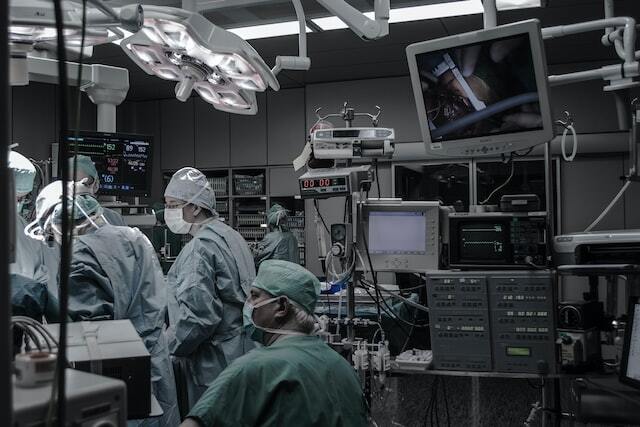The Future is Catching Up with the Past for Hong Kong’s Healthcare

Hong Kong has long been famous for its well-run, affordable public healthcare system. With all public healthcare services receiving heavy subsidies from the government, the general public is (on the whole) able to receive high-quality low-cost medical treatment. However, with an aging population and overall population growth, coupled with an explosion of lifestyle and environmental related diseases, the city’s public healthcare services are increasingly being pushed to their limits. While healthcare reform is a continually mentioned in the legislature (with serious discussion on wholesale reform occurring as early as 2006), very little practical action has taken place. Since the start of 2019 the stress within the public healthcare system has become progressively more evident, and it is clear that some systemic changes need to happen.
The Current Healthcare Landscape in Hong Kong
CCW Global took and in-depth look the overall healthcare system in Hong Kong, both public and private, for the first time back in 2013. Since then the only real changes experienced by the public healthcare system have been some relatively minor price adjustments for the various services being offered:

The biggest cost increase to Hong Kong residents using the public system is for Accident and Emergency services, with an 80% increase since 2013. But in real terms, the cost of HK$180 per attendance for an accident or emergency is still far lower that offered by a private hospital like the Hong Kong Adventist, where just seeing a doctor will cost HK$450 before any treatment.
While Hong Kong has the greatest concentration of millionaires of any city in the world, it also has one of the highest levels of wealth inequality anywhere in the world. Unfortunately, the cost associated with private healthcare services is too expensive for many, especially without any form of health insurance to assist.
The, still, relatively low cost of treatment at a public hospital or clinic means that these facilities are the preferred way to receive healthcare for much of the Hong Kong population. However, local usage of healthcare services is only one part of the picture – increasing numbers of foreigners (including mainlanders) are using Hong Kong’s public hospitals for their primary care needs. Coupled with a lack of qualified doctors, excessive bureaucratic red tape, and a growing number of serious malpractice claims, it becomes increasingly evident that the cracks in this once renowned institution are starting to show.
Hong Kong’s Public Healthcare Uncertainty
This is not hyperbole.
In the current flu season, public healthcare works see an estimated 50 – 55 patients per night. The current wait time to see an orthopedic specialist is 166 weeks, with an actual appointment which may last mere minutes. The problems are now being to stretch the resources and ability of the city’s healthcare workers that the unthinkable is even being proposed; allow foreign doctors to work under the Hospital Authority.
The fact that the healthcare unions and the hospital authority are even thinking about this action, something which has been fiercely resisted since 1997, goes a long way to showing how stressed our public hospitals actually are.

CCW Global has long stood by the services offered by the local healthcare system in Hong Kong. Even going so far as to state that health insurance is not a necessity in the city – after all, A&E services cost a mere HK$180 (US$23) per attendance. But when doctors are having to work shifts in excess of 12 hours, and when patients have to wait days, months, and even years for their care, the standard of treatment and the quality of life of those receiving that treatment begins to suffer.
When doctors are distracted mistakes happen, as in the Feb 15 2019 “Balloon explodes in woman’s anus” incident. Or the Feb 1 2019 “we didn’t see the lung cancer” blunder. Or any of the vast array of malpractice events that occurred during 2018. From worrying about the next patient, or trying to diagnose this patient’s condition as quickly as possible, or simply being exhausted from having been on your feet for 12 hours straight; there are myriad reasons why the current system is in the state it is in, and why doctors and hospitals are increasingly making local news headlines.
But this doesn’t help us solve the problem of how to improve and stabilize healthcare services, and it desperately needs to be solved. The Hong Kong healthcare system is an institution that is depended on by a vast majority of the city’s residents. While private services are, technically, an option they are not a realistic option for many.
Will Hong Kong’s Healthcare System Ever Reform?
Let’s be honest, its going to take more than a bandage to plaster over the cracks.
Since 2006 the government has looked at various options of Health Insurance Savings Accounts, Health Insurance coupons for subsidized coverage, and even mandatory insurance coverage. Since the handover in 1997 this has been debated by every single chief executive in Hong Kong.
None of these “reforms” worked. If they had we probably wouldn’t be in the situation we currently face. Maybe they weren’t implemented correctly, or taken far enough in their agency, but they were an acknowledgement that a situation exists and needed to fixed.
The situation becomes even more dire when looking at the subsidization levels by the government for various services. Across the board, the government is carrying the cost of roughly 81 – 97% of all public healthcare expenses. The long-term sustainability of the public healthcare system, even with the minor price increases for services received, is not there.
Furthermore, while there is a two-tiered pricing structure for Hong Kong residents and Non-residents, this has not prevented non-residents from choosing to receive medical services at public hospitals and clinics because they are still cheaper than those offered by private facilities! Compounded with a population which is only becoming older, with a fixed income, and which will demand a higher level of medical treatment over time, it is not a question of will the healthcare system reform but when.




